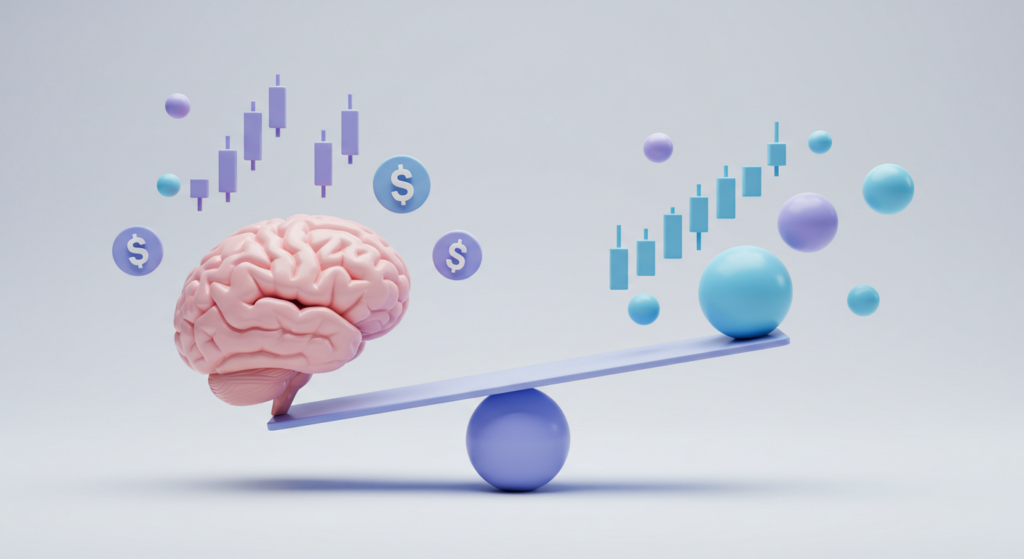
Trading isn’t just about charts, indicators, or market timing — it’s about the person behind the screen. The real challenge for many traders isn’t spotting setups. It’s managing themselves.
Fear, greed, impatience, and overconfidence are all natural human responses to market movement. But when you let those emotions drive your decisions, your trades stop being strategic — and start being reactive. Understanding the psychology behind your trades is what separates short-term guesses from long-term growth.

Here’s how to develop emotional discipline and take back control of your trading.
Stick to the Plan, Not the Panic
Every successful trader has a plan — and follows it. That means setting clear entry and exit rules, defining risk, and avoiding impulse trades.
When the market moves quickly, emotions try to hijack the wheel. You might feel the urge to close a trade too early out of fear, or hold on too long out of hope. But the market doesn’t reward emotions — it rewards consistency.
Pro tip:Write down your trade plan before you enter a position. If a move tempts you outside your rules, pause. Re-read your strategy before you act.
Control What You Can — Accept What You Can’t
The market will never be fully predictable. But your reaction to it can be.
The best traders accept that losses are part of the game. What matters more is how you manage them. Chasing losses or doubling down to “win it back” rarely ends well. You can’t control the market — but you can control how much you’re exposed and how you respond when things go wrong.

Pro tip: Use stop-losses not just as a technical tool — but as a psychological boundary. They take the emotion out of the decision by deciding it in advance.
Learn to Recognize the Triggers
Just like athletes or performers, traders have emotional “triggers” that impact performance — and most don’t even notice them.
Do you overtrade after a winning streak? Do you hesitate after a big loss? Awareness is the first step to control. Keep a trading journal, not just of your entries and exits — but how you felt, what your mindset was, and what made you act.
Pro tip: Review your journal weekly. Patterns will appear. Over time, you’ll learn your psychological weak spots — and build discipline around them.
Don’t Let P&L Dictate Your Mood
Watching your open profit and loss (P&L) fluctuate can stir up a rollercoaster of emotions — especially if you stare at it all day.
The CFA Institute notes that emotional decision-making often spikes during periods of uncertainty and volatility — exactly when clear thinking is most crucial.
Remember, trading isn’t about what your trade is doing right now — it’s about the process. Checking your P&L every minute doesn’t help the trade — it often hurts your psychology.
Pro tip: Set alerts at your key trade levels and walk away. Trust your plan to do the work, not your nerves.
Process Over Outcome
The truth is: You can do everything right and still lose a trade. That’s part of the market. But the inverse is also true — you can get lucky on a bad decision.
Mindfulness and self-awareness can give traders a measurable edge, as Dr. Brett Steenbarger often says: “The mind is the most important market we trade.”
Focus on improving your process, not just your results. The goal is to become the kind of trader who wins because of skill, not chance.
Pro tip: After every trade, ask yourself: “Was this a good trade because it worked? Or because I followed my process?”
Mind Over Market
If trading were just about numbers, bots would always win. But trading is about people — and people bring emotions. The more you can separate instinct from impulse, the more control you’ll have over your outcomes.
Master the market by mastering yourself.









